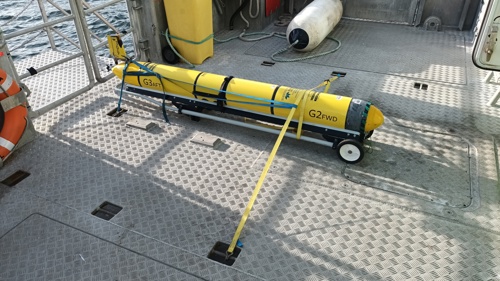MAS-DT
Marine Autonomous Systems Digital Twin (MAS-DT)

Marine Autonomous Systems (MAS) are widely used in oceanography for collecting scientific data measuring the world’s oceans. Such data finds downstream uses in weather models as well as marine science more broadly. MAS are expected to play a pivotal role over the coming decade, increasing the quantity and quality of measurements while reducing carbon intensity.
The rise in the use of MAS such as ocean gliders brings challenges regarding their operation and management. Glider piloting is generally manual, with operators checking disparate data sources to update configurations. Since not each surface event can be monitored by a pilot, opportunities are regularly lost to make glider missions faster or conserve energy.
The MAS-DT project is a collaboration between the Oxford Robotics Institute and the National Oceanography Center (NOC). It seeks to build a Digital Twin (DT) of the ocean and utilise it for planning missions using Artificial Intelligence (AI) techniques. It aims to increase the efficiency of unsupervised glider navigation, support complex glider operations, and assist in managing fleets of MAS.
Project Team
-
ORI Principal Investigator: Nick Hawes
-
Researchers: Victor-Alexandru Darvariu, Bruno Lacerda
-
ORI Groups Involved: Goal-Oriented Autonomous Long-Lived Systems (GOALS)
-
Project Partners: National Oceanography Centre (NOC)
